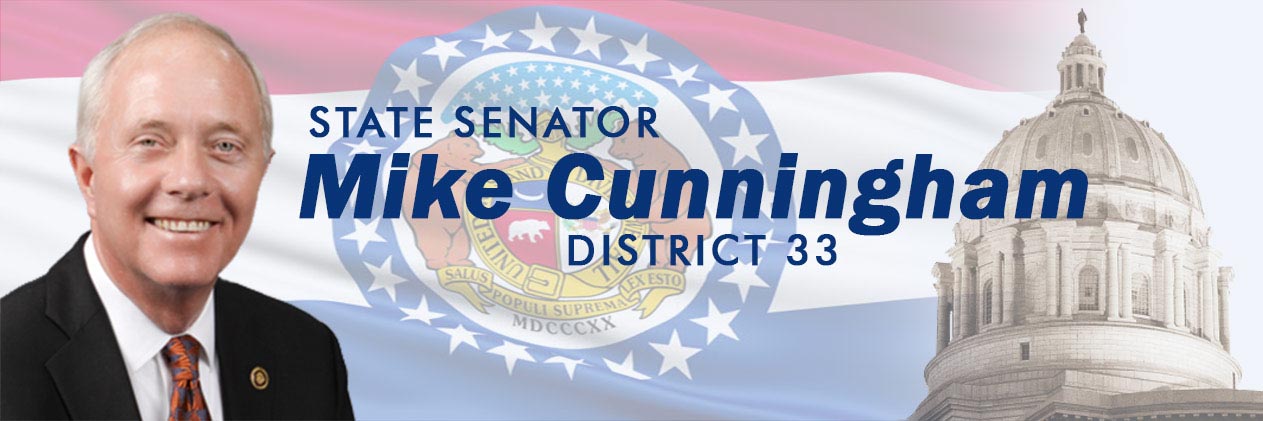
Legislative Column for May 7, 2019
There are fewer free lunches in the Missouri State Capitol these days. Amendment 1, the so-called Clean Missouri initiative approved by voters in November, all but ended the tradition of advocacy groups feeding legislators, their staffs and even Statehouse visitors. The new $5 limit on gifts isn’t popular with Jefferson City restaurants and catering companies, but the voters had their say.
The ethics reforms imposed by Amendment 1 have not impacted my office. I have never accepted meals, sports tickets or any other gifts from lobbyists. On the rare occasions I’ve found myself at a sponsored function, I’ve been careful to reimburse the host for the cost of meals or appetizers. A check of my legislative history at the Missouri Ethics Commission’s website will show a whole lot of nothing.
In truth, few people inside the Capitol were troubled by the ethics changes brought about by Clean Missouri. The occasional buffet line never influenced anyone’s vote, and limiting lobbyist gifts will not discourage anyone from serving in the Legislature. What did bother many lawmakers was the way that these modest ethics changes were used to lure the public into approving a much more significant change in state law.
I believe the drafters of the Clean Missouri initiative assumed voters would embrace lobbying reforms and not look closely at the fine print. They were right. Many voters had no idea they were also voting to dramatically alter how legislative districts are determined in Missouri.
Every citizen of Missouri is represented by two members of the Missouri General Assembly: one senator and one member of the House of Representatives. Where you live determines which candidates you are presented on Election Day. The boundaries of legislative districts are revisited every 10 years, following the U.S. Census.
Previously, borders for legislative districts were drawn by bipartisan commissions appointed by the governor. Each district had to be roughly equal in population, contiguous and compact. Under Amendment 1, legislative districts will be drawn by a state demographer, a new position to be appointed by the state auditor. In addition to geographic considerations, future boundaries must also promote “partisan fairness and competitiveness” – meaning Democrats and Republicans must be equally represented – while ensuring that racial minorities are not disenfranchised. The prevailing view is that political parity trumps all other criteria.
How this new redistricting scheme is going to work is anyone’s guess. Is it even possible to create districts that are compact and contiguous while ensuring roughly equal numbers of voters from both major parties? We could see some extremely odd legislative districts, especially in rural areas. It’s possible that disconnected areas of the state will be lumped together as a single district or that one district might completely encircle another. So much for contiguous and compact.
A number of measures have been introduced in the General Assembly to clean up this mess. Senate Joint Resolution 23 and House Joint Resolution 48 scrap the state demographer position altogether and return redistricting to the bipartisan committees that have been used for decades. Senate Joint Resolution 29 keeps the new system, but modifies the order of priorities, placing partisan consideration at the bottom of the list. Another measure, Senate Bill 213, merely applies the same ethics rules to the state demographer that now guide legislators. What’s good for the goose is good for the gander.
None of these proposals undo the ethics reforms that brought voters to the polls last November. In fact, several go even further, eliminating lobbyist gifts entirely and expanding the revolving door provisions that now prevent legislators from becoming lobbyists within two years of leaving office.
Every bill that addresses the Clean Missouri approach to redistricting – either by eliminating the demographer’s position or by reordering priorities – requires approval by voters. By placing the redistricting question on the ballot in clearly focused, single-topic language – a genuine “clean” choice – the will of the people can truly be determined. Rather than ignoring voter’s wishes, these proposals will provide clear guidance on redistricting, without the confusing misdirection of ethics reforms.
With just one week left in the 2019 legislative session, we may not see any of the proposed redistricting changes passed. That does not mean the issue won’t be revisited. The priorities spelled out in the Clean Missouri bill are unworkable. If the Legislature doesn’t address redistricting, the courts surely must.
As always, I appreciate it when groups from around Missouri and from our community back home come to visit me at the Capitol. If you would like to arrange a time to come and visit me in Jefferson City, or if you ever have any questions, please don’t hesitate to contact my Capitol office at (573) 751-1882.
